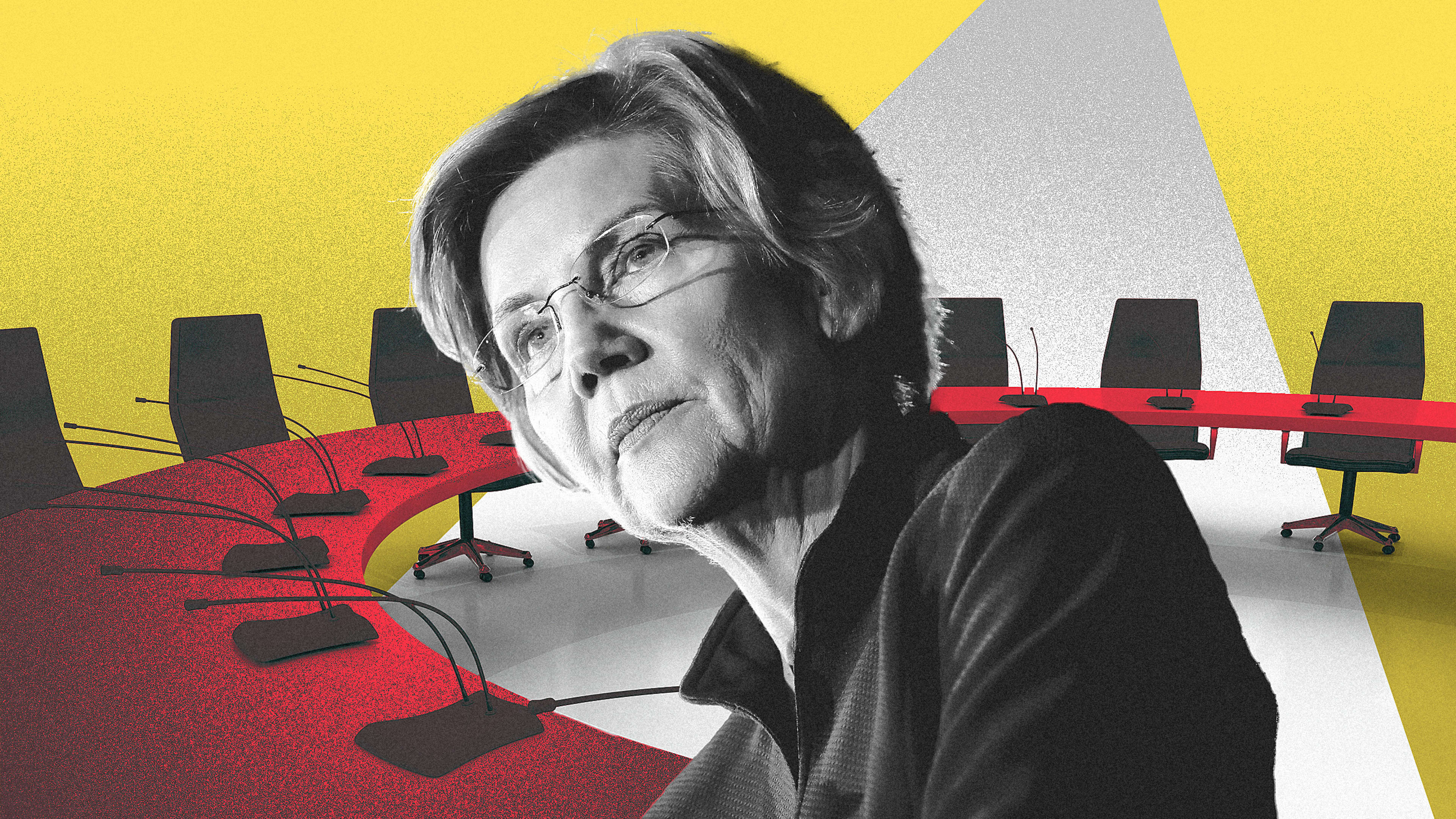Last August, the Business Roundtable made a big, splashy announcement: Nearly 200 of its member CEOs, led by JPMorgan Chase’s Jamie Dimon, would reverse their harmful, decades-long position that “corporations exist principally to serve shareholders.” The new “Statement on the Purpose of a Corporation” said they would now serve all stakeholders, including workers, consumers, and the communities in which they operate. But one year later, their actions show this was just an empty publicity stunt.
Even during a devastating pandemic and economic collapse, the Business Roundtable has been lobbying for the narrow, short-term interests of CEOs. Enough with the press releases. The Roundtable must fully commit to the principles they set out in the 2019 “Statement,” act on them, and publicly report on their progress in the coming year. Congress must also pass my Accountable Capitalism Act to force these giant corporations to fundamentally reform the way they do business.
Enough with the press releases. The Roundtable must fully commit to the principles they set out.”
Right after these companies signed the Roundtable’s flashy “Statement,” I asked 10 of the CEOs to provide the tangible actions they were going to take to act on their commitments. I also asked them to endorse my Accountable Capitalism Act to democratize corporate governance. Specifically, my bill would require large companies to consider the interests of all stakeholders by ensuring that workers have representation on corporate boards, limiting stock sales by corporate officers so that they are forced to act in the company’s long-term interests, and preventing corporations from spending money in political campaigns unless they advance the interest of all of the company’s stakeholders.
But nearly all of the companies refused to respond to my questions, choosing instead to hide behind an inadequate Business Roundtable response that only provided vague, boilerplate assertions, demonstrating there were no changes and no reform to their practices.
The ongoing pandemic and economic collapse have further revealed the inherent danger in corporations’ obsession with maximizing shareholder-only interests and made it clearer than ever that the country needs my Accountable Capitalism Act to protect workers, consumers, and communities. Recent reports even show that many companies have quietly backtracked on their pandemic responses and that “the first wave of corporate responses seems to have dwindled much faster than the disease itself.” These corporate responses sometimes included hazard pay, special customer benefits, and pauses on payments or foreclosures, but many corporations have rolled back these benefits as the pandemic continues to spread out of control.
Additionally, at a time when our nation is facing an urgent reckoning with systemic racism and racial inequality, corporations are still cutting benefits for essential workers, which disproportionately hurts communities of color. While some companies have said that they will take steps to fight racism, a lot of the same ones have tricked and trapped the Black community with dangerous products, failed to hire and promote Black workers, and continue to exacerbate systemic inequality.
If the Business Roundtable members truly wanted to honor their commitments to stakeholders and communities, they would document and publicly report how their companies are working to stop fueling and exacerbating racial inequality.
But this is not just on the individual CEOs. The Business Roundtable, which organized the nearly 200 CEOs in issuing the new commitments, spends millions of dollars lobbying against unemployment benefits and for liability protections while workers lose their jobs, get sick, and die. It is impossible to understand how spending millions of dollars lobbying against worker protections is remotely consistent with the Business Roundtable commitments, especially as a survey found that a majority of its members “expect the business impact from the coronavirus to linger until at least the end of 2021” and that nearly “a third of them fear it could persist beyond then.”
Rebuilding our economy so that workers, customers, and communities are able to share in prosperity requires real change in the way decisions are made in corporate boardrooms and on Wall Street. If the CEOs of the nation’s largest corporations truly share my commitment to a stronger economy for workers, communities, and consumers, they should fully commit to the principles they claim to hold, put them into action, and publicly report on their progress.
Elizabeth Warren is a Democratic senator from Massachusetts and a former presidential candidate.
Recognize your brand’s excellence by applying to this year’s Brands That Matter Awards before the early-rate deadline, May 3.
